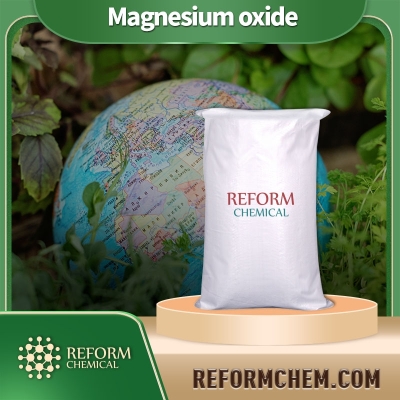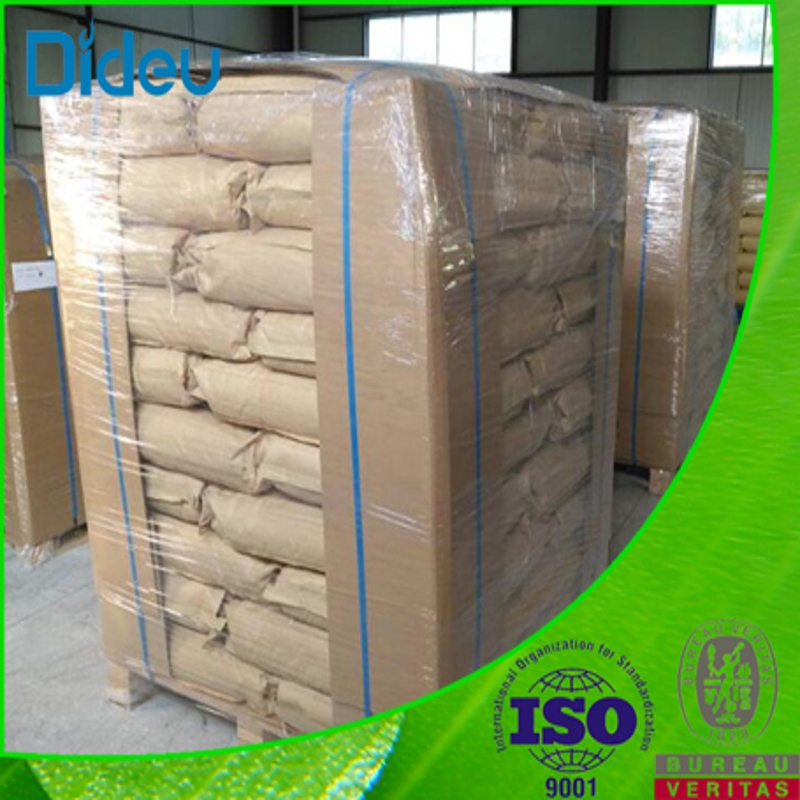-
Categories
-
Pharmaceutical Intermediates
-
Active Pharmaceutical Ingredients
-
Food Additives
- Industrial Coatings
- Agrochemicals
- Dyes and Pigments
- Surfactant
- Flavors and Fragrances
- Chemical Reagents
- Catalyst and Auxiliary
- Natural Products
- Inorganic Chemistry
-
Organic Chemistry
-
Biochemical Engineering
- Analytical Chemistry
-
Cosmetic Ingredient
- Water Treatment Chemical
-
Pharmaceutical Intermediates
Promotion
ECHEMI Mall
Wholesale
Weekly Price
Exhibition
News
-
Trade Service
At the just-concluded European Medical Oncology Annual Conference (September 16th-September 21st), the third representative of the original research in China, the skin growth factor receptor (EGFR) tyrosine kinase inhibitor (TKI) mesylate The Phase Ib clinical study (FAVOUR) of metinib (hereinafter referred to as "Vometinib") in the treatment of EGFR20 exon insertion (ex20 ins) mutant advanced non-small cell lung cancer (NSCLC) announced the results of the first-line treatment cohort (Abstract# 1325) 1
.
FAVOUR Study Design 1 The results showed that 10 patients who received 240 mg of vomitinib daily for first-line treatment all had different degrees of tumor target lesion reduction, with a median shrinkage of -51.
8% and a disease control rate (DCR) of 100% ; Among them, the tumors of 6 patients reached the objective remission standard, and the confirmed objective remission rate (ORR) was 60%1
.
The results of the FAVOUR study: all patients had different degrees of tumor target lesion reduction.
1 In terms of safety, 9 patients in the group had treatment-related adverse reactions, and the most common treatment-related adverse reaction was diarrhea; 1 case discontinued treatment due to diarrhea For 6 days, 240 mg vomitinib daily was continued; however, no adverse reactions of grade 3 or higher were observed in this cohort 1
.
Although the sample size of the FAVOUR study was small, three times the conventional dose of vomitinib treatment (median drug exposure time 4.
1 [2.
7-5.
4] months) did not bring about a case of ≥ grade 3 adverse reactions, and the overall suggestion of vomitinib It is a third-generation EGFR-TKI with good safety
.
This brings a broad clinical application space for its use in rare and rare EGFR-mutant NSCLC, lung cancer brain metastasis NSCLC, and postoperative adjuvant therapy
.
The results of the Phase IIa clinical study of vomitinib published by the World Conference on Lung Cancer (WCLC) in 2020 found that the intracranial effective rate of vomitinib in the treatment of brain metastases at a dose of 160 mg per day is 84.
6%, while the effective rate of 80 mg treatment is It is 60%; and compared with taking 80 mg daily, taking 160 mg daily did not significantly increase serious adverse reactions
.
WCLC announced the efficacy results for patients with CNS metastases in different dose groups (data deadline: 2020-01-29) In the era of EGFR-mutated advanced NSCLC gradually becoming a chronic disease, what challenges will targeted therapy face? In addition to ORR, progression-free survival (PFS) and overall survival (OS), these drug efficacy evaluation indicators, what other indicators will have more clinical significance? How important is the long-term safety of the third-generation EGFR-TKI to make lung cancer a chronic disease? Recently, this platform interviewed the lead researcher of FAVOUR, Professor Han Baohui, Department of Respiratory Medicine, Shanghai Chest Hospital Affiliated to Shanghai Jiaotong University, and conducted in-depth communication on these issues
.
With the continuous iterative update of drugs targeting EGFR/ALK driver genes, the survival period of patients with EGFR/ALK mutation-positive advanced NSCLC is getting longer and longer
.
In this context, what challenges are still facing treatment? Professor Han Baohui: In the 16 years since the first EGFR-TKI drug was approved for the treatment of advanced NSCLC in China in 2005, the first, second and third generations of targeted therapies targeting EGFR targets contained Platinum chemotherapy significantly improves disease-free survival, and turning advanced lung cancer into a chronic disease has become a reality in some patients
.
Although targeted therapies cannot completely eliminate tumors and cure advanced lung cancer, they allow some lung cancer patients to survive with tumors
.
But in the process of turning lung cancer into chronic, the biggest obstacle that needs to be overcome is the metastasis of cancer cells to important organs
.
In important organ metastases, brain metastases should be the first to bear the brunt, because nearly half of advanced stage IV NSCLC will have brain metastases of varying degrees or manifestations, and this brain metastasis will ultimately pose the greatest survival threat to patients
.
Does the treatment of lung cancer CNS metastasis often need to increase the drug dose? Professor Han Baohui: Compared with the first-generation EGFR-TKI, the third-generation EGFR-TKI can penetrate the blood-brain barrier and enter the brain better; but in clinical practice, treating brain metastases or meningeal metastases is like treating rare or rare EGFR mutations.
It is often necessary to increase the dose of the drug to ensure sufficient drug concentration in the cerebrospinal fluid and brain
.
However, whether the dose can be increased is closely related to the safety and tolerability of the drug
.
The dose intensity of anti-tumor drugs is positively correlated with reducing tumor burden and achieving tumor downgrading
.
That is to say, within a certain limit, increasing the dose of the drug can enhance the energy efficiency of killing tumors or reducing tumor burden
.
The therapeutic window of chemotherapeutics is relatively narrow because it has a dose-limiting toxicity; while the therapeutic window of targeted therapies is relatively wide, which lays a safe foundation for us to overcome drug resistance and overcome the problem of metastasis of special organs
.
But to increase the dose of drugs, our biggest concern is the safety hazards caused by high doses
.
This safety hazard includes organ toxicity, such as liver failure, severe diarrhea and interstitial pneumonia
.
If the therapeutic effect of increasing the dose is far greater than its toxicity, especially if we increase to twice the dose, or even three times the dose, and the drug safety data is similar to the recommended dose, I think it is rare for lung cancer brain metastasis.
Or rare EGFR-mutant NSCLC will be a very good treatment strategy
.
In the FAVOUR study, the use of three times the conventional dose (240mg) of vomitinib did not cause serious adverse reactions
.
Why did you choose this dose? Professor Han Baohui: In the phase I dose escalation trial of vomitinib, the dose was increased from 20 mg/d to 240 mg/d.
No dose-limiting toxicity was observed, and the maximum tolerated dose was not obtained
.
Among the 130 patients in the phase I dose escalation trial and the phase I-II dose expansion trial, 18 patients received 240 mg/d treatment, and there was no increase in ≥ grade 3 adverse events/treatment-related adverse events compared with the 80 mg/d patient group.
Out of good security
.
The preliminary results of the FAVOUR study showed that 240 mg vometinib treatment still has a relatively good safety record.
Except for a relatively higher increase in diarrhea, the incidence of liver toxicity and interstitial pneumonia has not significantly increased
.
Why can the safety window of vomitinib dose be so wide? Professor Han Baohui: Vometinib innovatively introduces the trifluoroethoxypyridine structure, so that its prototype drug and its main metabolites have high anti-tumor activity, and their anti-tumor effects are highly selective
.
In fact, the other three generations of EGFR-TKIs are also very specific for the selection of EGFR mutation targets, but the metabolites after entering the human body lose their high selectivity, and can inhibit both EGFR sensitive mutations and EGFR wild-type.
Will cause more adverse reactions
.
Currently, there are three third-generation EGFR-TKI drugs approved for treatment of advanced lung cancer in China
.
In clinical practice, if a patient is intolerant to one drug, will he consider switching to another third-generation EGFR-TKI drug? Professor Han Baohui: The multiple drugs of the first, second and third generation EGFR-TKIs provide our clinicians with very good multiple options, bringing flexibility for doctors to treat more effectively and safely
.
For example, when a third-generation EGFR-TKI causes severe interstitial pneumonia and the drug has to be discontinued, or the patient cannot tolerate continued treatment due to severe diarrhea, we can choose other third-generation EGFR drugs
.
I think that vomitinib, as an excellent third-generation EGFR TKI therapeutic drug that is relatively safe and relatively low in side effects, can completely "act on its own" when the toxicity of other drugs cannot be tolerated, because of its Efficacy and safety have been verified in clinical research and clinical practice
.
At present, three generations of EGFR-TKI targeted drugs in China have been approved for the adjuvant treatment of early and mid-stage NSCLC patients
.
For postoperative adjuvant therapy, is the safety of targeted therapy drugs more important? Professor Han Baohui: The drug adjuvant treatment of early and mid-stage lung cancer after R0 resection is basically an intervention without tumor burden.
It is a preventive treatment, so the requirements for safety are much higher than that of inoperable Advanced lung cancer that can only receive palliative medical treatment
.
In general, the course of adjuvant therapy is longer than that of advanced lung cancer
.
At present, although based on the results of large-scale phase III clinical studies in the world, China's drug approval and regulatory authorities have approved three-generation EGFR-TKI for postoperative adjuvant treatment of IB-IIIA stage NSCLC patients, but I think we still need to produce three-generation EGFR- TKI is used to assist the treatment of evidence-based medicine in the Chinese population to better guide our clinical practice
.
Because whether it is chemotherapy, targeted therapy, or the current raging immunotherapy, there are significant differences between the Caucasian race and other races, such as the Chinese population, in terms of therapeutic efficacy and safety
.
Therefore, although large-scale clinical studies have been done for foreign countries, if the sample size in China is not enough, I think it is absolutely necessary for our Chinese companies and Chinese experts to take the lead in conducting large-scale phase III confirmatory studies for Chinese patients.
Clinical trials to understand the efficacy and safety of treating Chinese patients
.
A randomized, double-blind, double-blind, randomized, double-blind, randomized, double-blind, randomized, double-blind, randomized, double-blind, randomized, double-blind, randomized, double-blind, randomized, double-blind, randomized, double-blind, led by He Jianxing, Dean of the First Affiliated Hospital of Guangzhou Medical University.
The placebo-controlled, multi-center Phase III registered clinical study (FORWARD) was launched this year to compare the efficacy and safety of vomitinib and placebo in adjuvant therapy for 3 years
.
We hope that FORWARD research can fill this gap
.
On September 25th, during the upcoming 24th CSCO Conference, Professor Han Baohui will meet with Professor Hu Jian, Director of the Lung Disease Diagnosis and Treatment Center of the First Affiliated Hospital of Zhejiang University School of Medicine, and the Department of Oncology, Union Hospital, Tongji Medical College, Huazhong University of Science and Technology Professor Xiaorong Dong presented the latest clinical research progress of three generations of EGFR-TKIs including vometinib for advanced and early and mid-term NSCLC
.
References: 1.
Baohui Han et al.
, Preclinical and Preliminary Clinical Investigations of Furmonertinib in NSCLC with EGFR exon 20 insertions (20ins); 2021 ESMO, Abstract 13252.
Y.
Shi et al.
, CNS Efficacy of AST2818 in Patients with T790M -Positive Advanced NSCLC: Data from a Phase I-II Dose-Expansion Study, 2020 WCLC, Abstract 3286







